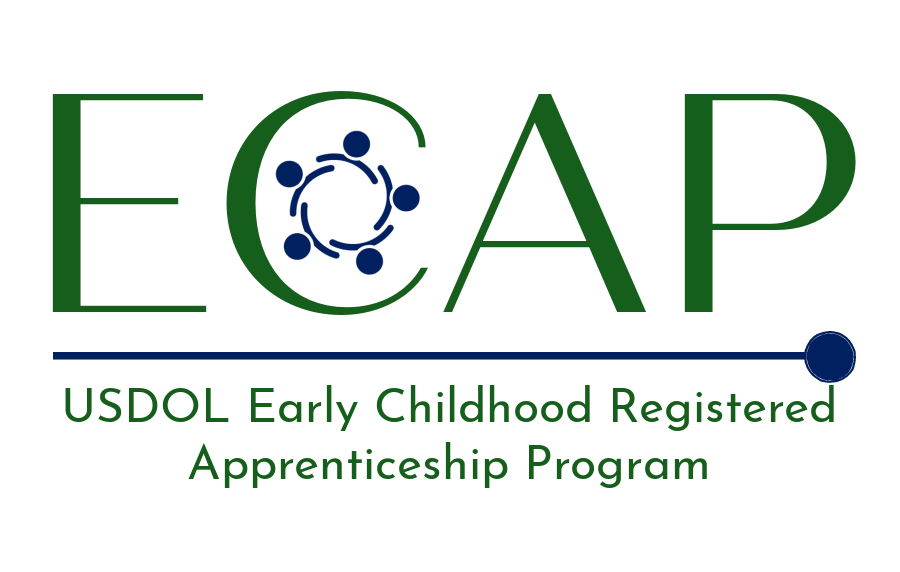Early Childhood Apprenticeship Program

The Southern NH Services and Department of Labor Early Childhood Apprenticeship Program (ECAP) is a training opportunity for individuals employed in the early childhood field. It is designed to combine classroom instruction and work experience to enhance the quality of care for children while increasing the apprentice’s skill level and wages. The goal of ECAP is for individuals to obtain the credential required to work as a teacher in a state licensed child care center, increasing the supply of skilled professionals and the delivery of high quality early education.

Registered Apprentice
Registered Apprentice Benefits:
- Earn credits from a college or institution as well as a nationally recognized Apprentice Certificate
- Earn college credits by utilizing available scholarships
- Gain experience through the support of a mentor teacher with on the job training and collaborative goal setting opportunities
- Receive pay increases with the completion of each predetermined step
- Offers an opportunity to earn credit for previous early childhood work experience
The Apprentice Must Complete:
- 3000 paid work hours
- 288 hours of classroom instruction, either:
- 6 College classes
- Trainings to complete a Child Development Associate Credential (CDA)
- Attend monthly goal setting and reflection meetings with your Mentor/Supervisor
- All required registered apprenticeship paperwork
Mentoring a Registered Apprentice
Mentor Benefits:
- Training focused on mentoring others in an early childhood education classroom
- A stipend for your work of mentoring each apprentice
- An opportunity to share and deepen your knowledge and excitement for the field
- Work with the Apprenticeship Program Coordinator on topics such as:
- Reflective supervision
- Creating supportive evaluations
- Mentoring techniques
- Opportunity to develop and demonstrate your skills as leader, adult educator and administrator
The Mentor Must Compete:
- Monthly evaluations of your apprentice based on developed competencies
- Monthly mentoring sessions with your apprentice to assist with reflection of attainment of goals, as well as adapting and refining goals based on evaluations
